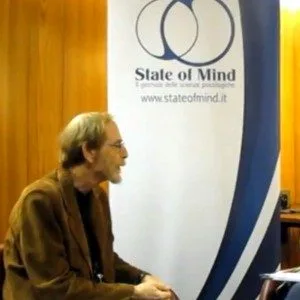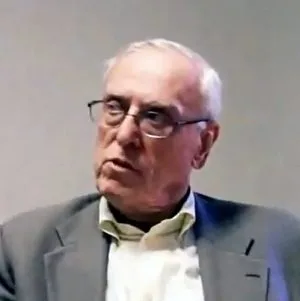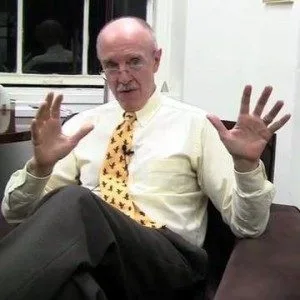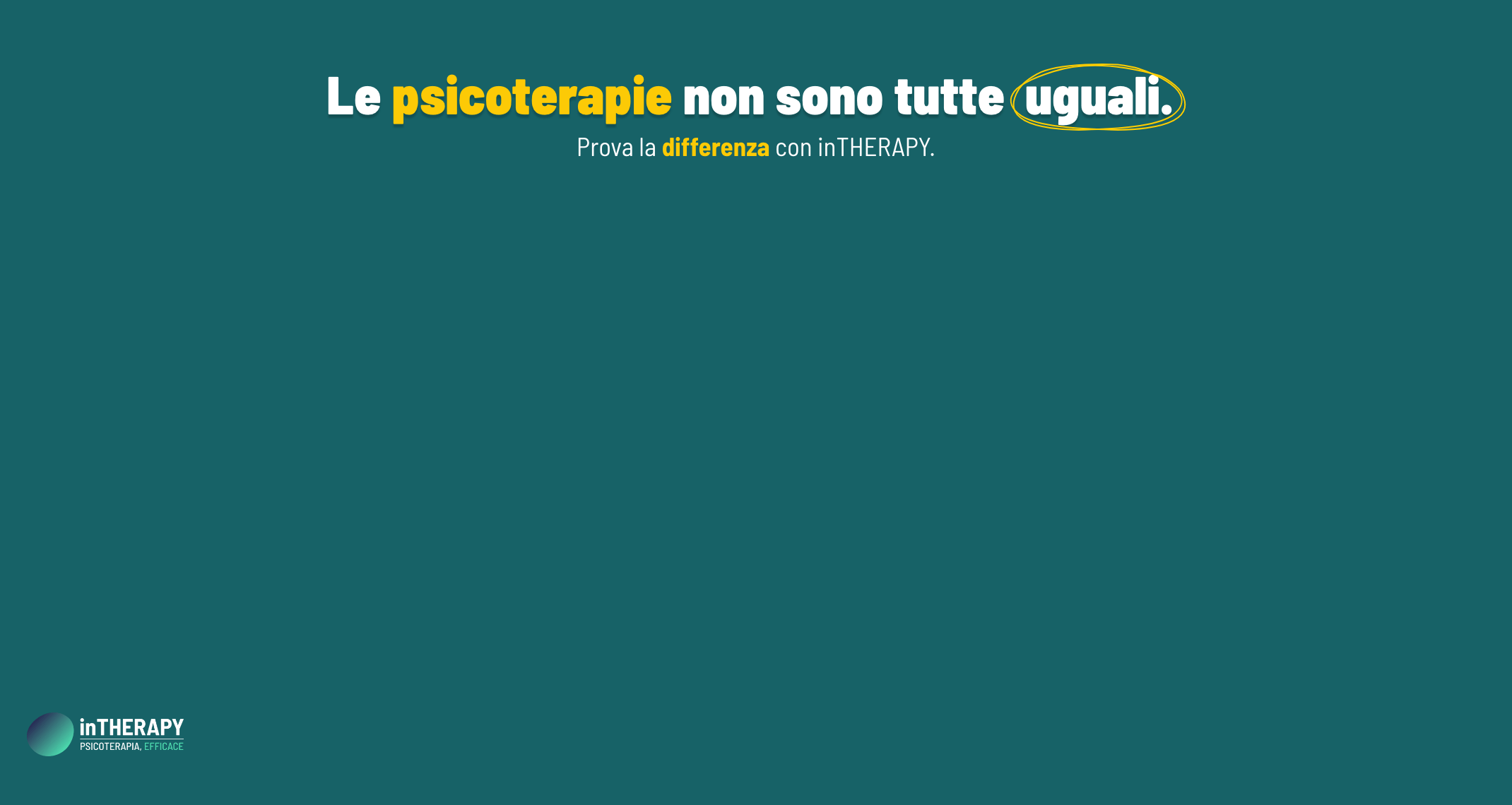
The Psychiatrist & the Rockstar: State of Mind interviews Sinead O’Connor
In my adolescent 90’s playlist there’s a Song (yes, song with a capital S) that wholly deserves it’s place of honor not only for the wonderful ballad (not surprising, seeing as the composer is a certain genius from Minneapolis formerly known as Prince) but above all for the singer’s performance that spears the listener straight in the heart, it pierces the left ventricle and bleeds five minutes and ten seconds of pure emotions.
The song’s called Nothing Compares 2 U and the singer is the Irish bad-girl with a shaved head called Sinead O’Conner.
The piece, which came out in 1990, was a worldwide phenomenon helped along by the minimalist video clip featuring only the singer’s angelic face moved to tears by the time she hits the final notes (Sinead was thinking to her mother, died in a car crash five years previously, while singing Nothing Compares 2 U).
The following years were characterized by even more excellent music and peppered with resoundingly blatant provocations (most famously when she ripped up a photo of the Pope on Saturday Night Live) which earned her the label of activist and heretic; Rock’s answer to Joan of Ark.
LEGGI LE INTERVISTE DI STATE OF MIND – READ ALL INTERVIEWS
In 2005 she surprised the masses by releasing her excellent reggae album “Throw Down Your Arms”, followed by the more intimate “Theology” in 2007, which dealt with her passionate relationship with spirituality.
At the start of 2012 her new album “How About I Be Me (and You Be You)?” was released.
This should have been followed by a tour which was cancelled due to a serious relapse into a depressive phase of the bipolar disorder that Sinead has suffered from, for 8 years. (Editor’s Note: According to DSM-IV criteria , it is most likely Bipolar II disorder). The deep depressive state was characterized by an attempt at self-harm by overdosing on prescription drugs having previously launched a desperate cry for help from her fans on twitter.
On hearing this news, I got the idea for an interview on Skype, each from their own home, me in Modena and her close to Dublin.
Sinead kindly took some time out from her schedule as a busy mother of four to speak to me. Despite the impersonality of online conversation, I felt as though on the other side of the screen I was talking to someone authentic, who isn’t ashamed to share their own fragilities and is extremely precise when describing her own journey towards healing.
THE INTERVIEW
GP: Well Sinead, first of all I want to thank you for your kindness and willingness in giving this interview. I must confess, I was really surprised that you accepted. I don’t know how much you want to talk about yourself specifically, but I would like that our talk be of some help for people who struggle everyday against depression.
S: I am interested in the issue obviously…well the only reason I am qualified to speak is because I have direct experience.
GP: So…you have been diagnosed with bipolar depression, haven’t you?
S: Yes I was diagnosed 8 and half years ago, but it took 12 years to get the right diagnosis.
GP: Did your disorder start with a manic state or with a depressive state?
S: I don’t get the highs and the manic particularly, I get the lows. When I was younger though, I had a very bad temper, that’s my being a bit of a manic; not in a happy way, but I was like… fuck that!
GP: A young rebel…
S: I have always had a good functioning in my artistic life, but I had problems mostly in my private life, I got very angry with my boyfriends and stuff…I would probably have good reasons to be angry but the volume would be too high, just getting to some level of wounding that perhaps was not appropriate to the actual offence committed.
GP: So you never had a proper manic episode?
S: I did have once where I was addicted to shopping, that’s unheard of for me because I fucking hate shopping, but I did actually about two years ago. That was as manic as I ever got. I bought a lot of clothes.
GP: Do you think that your experience of depression has been of some inspiration for your creative process at some point?
S: I think the other way round. I don’t agree with this romantic fantasy that people who suffer from depression are more likely to be artists. I find that I am more creative when I am happy actually.
I think that music has been a great help to me and this has been confirmed by every psychiatrist I have seen. I would probably be dead if not for music. They think that the reason that I have this depression is for what I went through growing up. I have also Post Traumatic Stress Disorder, and I wouldn’t have survived that if not for music. So I think for me, music was a soothing thing and it was also a place where you could say all the stuff that you couldn’t say anywhere else. When I grew up in Ireland in the seventies there was no such thing as therapy…I mean we didn’t even have cappuccinos until 1998! So for me music was therapy, it was also the place where one could speak about himself, where he was allowed to speak about his traumatic experiences. I grew up in a situation of extreme abuse, but there was no chance to talk about it, so music became the escape if you like.
GP: In which way has music helped you? More in the creative process of song writing or more in the cathartic process of performing?

S: I think all of it. I think in the first place hearing the music inside of you is very soothing, very comforting. For me there always been, if you like, a spiritual connection between myself and music. What I like about being a musician is that I find the thing soothing, but I also give the soothing to other people; I guess for some people particularly, I think people who come from abuse and/or people who have mental illnesses, have terrible self-esteem problems. And for me I have always found being a musician, a work and a place where I find a lot of self-esteem. I feel that I was a useful contributor to society, and that I couldn’t be a contributor to society in any other way.
I think when you have a mental illness you can feel very bad about yourself because you are always fucking up in life and making music perhaps makes you feel you are not such a dreadful person and there is something you can do that is not fucked up… because there is a terrible lack of self esteem that comes with mental illness, especially if you live, like I do, in a society such as Ireland, where having mental illness has a dreadful stigma.
And also I suppose is very cathartic to do a show to the masses and you get to make magic in a manner that you can’t do in regular life, but I suppose that self esteem effect is one of the most powerful.
GP: I think that the problem of stigma in mental health is as important as the illnesses themselves. Can you tell me something more about the stigma situation in Ireland?
S: Well I suppose in some ways, all over the world “crazy” is a term of abuse and I think that is something that should be stopped. In Ireland “crazy” is a term of abuse and people are terrified of anything that they conceive to be crazy. And the people believed to be crazy won’t be treated compassionately, they will treat you horribly and use it as a reason to dismiss anything you would think, do, say or feel, so you’re rocking into a self esteem trap. I had a letter from a man back in January, an old man aged 73, he lives in Goolen (Ireland), I was thinking about him this morning, he has been taking antidepressants for 30 years and he has not told his wife and his adult children because of the stigma. That is Ireland, you know. We are very ignorant about the nature of mental illness. People assume all over the world for example that schizophrenia means you have a lot of personalities, like multiple personality disorder, but it is not. It is completely different.
When you have mental illness you don’t have a plaster or a cast or a crutch, that let everyone know that you have the illness, so people expect the same of you as from anyone else and when you are different they give you a hard time and they think you’re being difficult or they think you’re being a pain in the ass and they’re horrible to you. You spend your life in Ireland trying to hide that you have a mental illness. I’m always checking with my friends “Do I seem crazy?”, “Am I being crazy?”, and I shouldn’t have to keep checking, if I’m being crazy I should be left in fucking crazy peace! You have to hide what you are and it’s really stressful and very bad for your self esteem. Because it’s not obvious to people that you are ill, they treat you as if you’re a pain in the ass, then you beat yourself up and you are already beating yourself up as a part of mental illness, you know.
I mean, I understand that we are actually complicated people but we are also dreadfully simple, but you know it’s a hard world where there is this gap between the supposedly sane and the supposedly insane, the sane are not familiar with the insane, which in itself is insane. We are all stuffed behind these kind of, you know, the actual bars that don’t exist anymore, the metaphorical bars do exist.
GP: I know that you have always had a difficult relationship with the Catholic Church. What do you think about the attitude toward mental illness of the Catholic Church today? Is there acceptance and compassion for the mentally ill?

S: (laughs) If there was acceptance of the mentally ill in the Catholic Church, the entire Curia would resign! You need the best psychiatrist in Italy to take a little time in there! The very top guys are insane. They are more insane than the lot of us put together. If they investigate mental illness they have to start out by checking themselves into hospital. Anybody who can claim that paedophilia and the ordinance of women are equal has a mental problem. When one criticizes the Church, what we usually mean, especially in Ireland, are the top guys. We all know that 99.9% of priests and nuns are incredible people, that do a lot to help people of all kinds. But the regular priests down the road haven’t got the training to go around the country breaking statements, all the poor priest can do is mop up the mess, which is usually suicide, ‘cause stigma leads to suicide. Because of the stigma, people don’t stay in treatment and they don’t get the help they need, because they know they are gonna be treated like shit.
GP: The stigma again…
S: Yes…for example: I checked into hospital about 2 years ago because I wanted to make doubly sure that the diagnosis was right. While I was in the hospital (I was there for 2 weeks), there was a woman about my age who had been there for 6 months. She wasn’t that unwell, and I was talking to her one day about why she was there and she showed me her arms, they were all cut. Her mother had died of cancer and she’d nursed her. Nothing had happened to this woman before, but the night her mother died, she probably lost her mind and she sliced up her arms. But the reason she stayed in the hospital so long was that in the village that she came from, they wouldn’t have her back, she couldn’t have her job back, none of her friends wanted to talk to her, she was a pariah in the village because she had done this to her arms, everybody thought she was mad. So she couldn’t go back to her town and she was based in the hospital.
GP: How many times have you been admitted to the hospital?
S: I took myself to the hospital twice. The first to get a clear diagnosis. The second was last year when I was taken off medication very stupidly and I got very sick, I couldn’t eat or sleep.
GP: Why did you stop the medication, was it for the side effects?
S: I was getting a lot of pressure from people in show business about my being overweight because of medication, I was on 200 mg of amitriptiline. When I said this to my doctor, for some reason she took me completely off medication and she didn’t really supervise properly. The mental health system here is really terrible. After I was taken off medications, I got sick, but I didn’t realize I was sick. Then I got carried away with loosing weight so I wanted to pretend I was not sick. It was not my choice to be off medication, but the psychiatrist took me off, so I thought it was ok. Unfortunately in my case, because of what I do for living, here in Ireland is very hard for me to find a doctor who can just deal with me as a person, that can get beyond Sinead O’Connor. I had to go to England to find a psychiatrist for my case.
GP: How long were you without medication?
S: I was off medication from August last year until April. I was told to come off by the doctor, so it took me a long time to know I was sick because when you stop those meds it takes a long time to get sick, so I didn’t know what the fuck was going on.
GP: Nine months without medication is really a long time…weren’t you warned by the psychiatrist about the possible risks of relapse?

S: Because of what I do for living, in Ireland all that the psychiatrist did was to complain about the stuff that was in the newspapers instead of talking about my sickness. The same psychiatrist was very involved in the Church’s public struggle in Ireland … on the opposite side to me. At the same time as coming off meds, when I was going to her, she complained to me that she didn’t like what I was saying about the Church in the newspapers, so we fell out and I was left stranded. Then in Ireland the mental health system is so shit that you can’t get an appointment with the doctor for treatment for months, so I would wait for another doctor to tell me the same shit. One doctor sent me home with anti-histamines and told me to take 100 mg every night. So I said “ok!”. In Ireland people think doctors are God, they don’t question them. But this meant I was sick for three more fucking months! And the funny thing is that it was a private doctor, and the only alternative is to go to the fucking hospital. Nobody wants to go to the hospital, the worst thing that can happen if you are sick is to leave your family and your children, that’s the only thing that make you feel safe.
GP: It sounds strange…in Italy you can choose a private doctor and pay more, but you can see the doctor more often.
S: Here you have six weeks in agony, but unless you want to check into hospital, you are fucked. Moreover, here people don’t have money. I have, but the guy next door can’t pay for a private psychiatrist and can wait up to six months for a consultation. I’ll give you an idea about how bad our system is: a friend of mine works in a child drug counselling service, run by the National Health Service for children aged between 12 and 18, and there is a fridge in the toilet! That is the picture of the health system in Ireland.
GP: I can imagine you really had terrible times. Was it in the last months when you couldn’t finish the tour?
S: Yes, I almost died. It was in June this year that I was very sick, like never before. I was put on carbamazepine in April and I had a very unusual reaction that made the symptoms worse. Now I feel better taking 200 mg of lamotrigine and 100 mg of quetiapine. Now I also take very high dose of vitamin B12, prescribed by the psychiatrist. They have just discovered that it helps with the depressive phase of bipolar disorder.
GP: Have you ever tried psychotherapy?

S: Yes, fucking never stops, I still do. At the moment I have counselling every week. From July to August this year I also worked for 12 weeks with a therapist at a Suicide Prevention Centre in Dublin. They are fantastic. One of the main symptoms when I was very sick was the constant suicidal thinking and I found that many therapists are not specifically trained in the area of suicidal thinking, so you can go on for years and it is not fixed. Because I was not on medication the suicidal thinking got worse and worse and I actually made an attempt in January, and then there were three more attempts. The therapists in the Suicide Prevention Centre just work on suicidal thinking. They don’t just talk about killing yourself, they help to rebuild your life, they help you to focus on what life do you want. I saw them once a week for individual sessions. While you do that you don’t do any other therapy.
GP: What do you mean by rebuilding your life?
S: They helped me identify a number of issues, the “off-switch” was one, learning how to fucking do nothing, just sit the fuck down and put energy out. Then you sit down and realize how tired you were, when you have depressed or suicidal thinking you don’t know how tired you are.
Then they focused on the thing with me that I am too inclined to take on board other people’s negative opinions of me. If ten people stood in a room and nine said you are fucking great and one said you’re an asshole, that would be what I’d worry about and believe in, that person, getting depressed if someone says I’m an asshole. They were able to teach me, which I hadn’t learned before, how to really not give a fuck about them. And then another important thing is fun, I mean “What are you doing just for fun?”, “Are you doing anything just for fun?”. They made me put together a bucket list, so first of all you deserve better, to hang out all the people that make you feel like shit, then you need to rest your body, to take time for yourself and they made me put together a list of the things I would like to do in my life, and that was great! They very quickly put you out of the misery part and start to build a fun life. It’s quite witchy how therapy works, it’s a kind of subconscious, you don’t know how the fuck they’ve done it but suddenly you start living differently and thinking differently. I’ve been able to build the life I want, do you know what I mean? When you have a mental illness I think it is important to work with prevention services when one of your symptoms is suicidal thinking.
GP: Did you struggle with interpersonal problems that drove you to think about suicide?
S: In that period I was not on medication, and in the same time a lot of awful stressful things were happening. If I had been on medication perhaps I would have responded differently. In my case it was purely the sickness that made me think suicide but it was a compulsion. I got to the point that the physical symptoms of bipolar disorder made me feel as if I was walking under water.
GP: Walking under water…really gives the idea of how you could have felt…well Sinead, I think you were really exhaustive and brave in telling your difficult story, and I want to thank you on behalf of State of Mind and of all the people who have to face mental illness every day.
ITALIAN TRANSLATION WILL BE PUBLISHED NEXT WEEK

